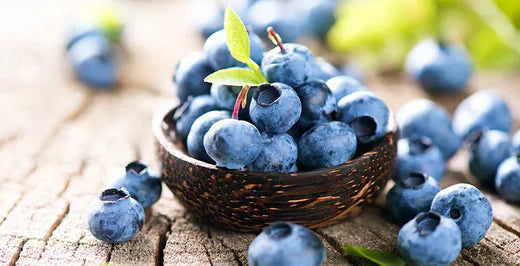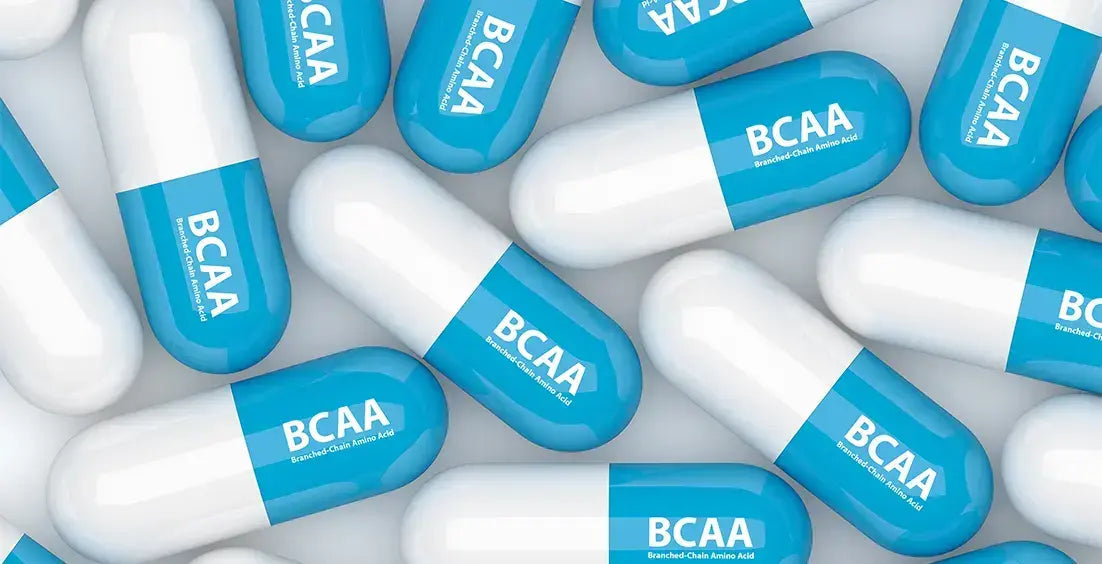What To Know About Antioxidants
Antioxidants are vital for good health, but many people aren't sure what they are or what they do. This article explains antioxidants, their benefits, and where to find them. Read on to learn more!

You’ve probably come across the word antioxidants many times, whether in health blogs, product labels, or during a casual conversation about food. But have you ever stopped to wonder, what is an antioxidant? Or what do antioxidants do for your body?
In this article, we’ll uncover the answers to these questions, explore how antioxidants work, and show you simple ways to add more of them to your routine, whether through food or supplements.
Let’s get right in and discover how these powerful compounds can make a real difference in your health.
What Are Antioxidants?
Simply put, antioxidants are compounds that help protect your body from damage caused by free radicals.
But what exactly are free radicals?
These are unstable molecules that can harm your cells, potentially leading to aging, inflammation, and even chronic diseases.
Antioxidants work by neutralizing these free radicals, it stops them from causing harm. In essence, they help maintain a balance, and ensure that your body stays as healthy as possible.
You can find antioxidants in many foods, especially fruits and vegetables, and they’re important in protecting your body from oxidative stress that is linked to various health issues.
Understanding what are antioxidants and how they work is important because it highlights just how crucial they are to your health. Let’s continue to explore how these compounds function and why you need them in your life.
READ MORE - Role of Antioxidants in Skin Care
How Free Radicals Function?
Free radicals are highly reactive molecules that are naturally produced in your body during normal metabolic processes, such as when your body converts food into energy. However, they can also come from external sources like pollution, smoking, and even stress.
These unstable molecules have an unpaired electron that makes them search for other molecules to bond with.
When they attach to healthy cells, they can cause damage to cell membranes, proteins, and even your DNA. This damage can lead to inflammation, and has been linked to aging and several diseases, such as heart disease and cancer.
This is where antioxidants come in. They neutralize free radicals.
They donate an electron that prevents the free radicals from damaging your cells. Without enough antioxidants, your body struggles to control free radicals, and this can lead to oxidative stress. Oxidative stress is a condition that can negatively impact your health over time.
What Are the Different Types?
Antioxidants come in different forms, and each have a unique role in protecting your body. They can be divided into two main categories:
1. Endogenous Antioxidants
These are antioxidants that your body produces naturally. They are essential for managing free radicals and maintaining a balance. Some of the key endogenous antioxidants include enzymes like superoxide dismutase (SOD) and catalase.
These help protect your cells from oxidative damage by neutralizing free radicals at their source. Your body relies on these internal antioxidants to maintain healthy cell function and fight the effects of oxidative stress.
2. Exogenous Antioxidants
On the other hand, exogenous antioxidants come from external sources, mainly from the food you eat. These include vitamins like Vitamin C, Vitamin E, and beta-carotene, as well as minerals like selenium and zinc. Since your body cannot produce these antioxidants on its own, it’s important to consume them regularly through your diet. Foods like berries, nuts, and leafy greens are rich in these protective compounds.
Both types of antioxidants are necessary for optimal health. While your body makes its own antioxidants, you must also consume the right foods to support its defense system and combat oxidative stress.
Natural Sources of Antioxidants
One of the easiest ways to boost your intake of antioxidants is through your diet. Many foods are packed with these powerful compounds, and the best part is, they’re often delicious too!
Incorporating a variety of antioxidant-rich foods can help protect your body from free radical damage.
Here are the major natural sources of antioxidants:
- Fruits and Berries: Fruits are some of the richest sources of antioxidants, especially berries. Blueberries, strawberries, raspberries, and blackberries are loaded with antioxidants like anthocyanins that help reduce oxidative stress. Other fruits, such as apples, oranges, and grapes, are also excellent sources of Vitamin C, a powerful antioxidant.
- Vegetables: Leafy greens and vegetables are another great source of antioxidants. Spinach, kale, and broccoli contain high amounts of Vitamin C, Vitamin E, and beta-carotene, all of which help protect your cells. Additionally, tomatoes are rich in lycopene, an antioxidant known for its potential to support heart health.
- Nuts and Seeds: Nuts like almonds, walnuts, and pecans, as well as seeds such as flaxseeds and sunflower seeds, are full of antioxidants. They are not only high in healthy fats but also provide a good dose of Vitamin E, to help protect cells from oxidative damage.
- Spices and Herbs: Certain herbs and spices like turmeric, cinnamon, and oregano are packed with antioxidants. Turmeric, in particular, contains curcumin, a compound known for its strong anti-inflammatory and antioxidant properties. Adding these spices to your meals is an easy way to boost your antioxidant intake.
How to Boost Your Intake?
If you’re looking to get more antioxidants into your diet, there are several simple and effective ways to do it. The key is to focus on nutrient-dense foods that are packed with antioxidants.
Here are a few easy strategies to boost your intake:
Eat a Colorful Diet
The more colorful your plate, the better! Different colors in fruits and vegetables indicate different types of antioxidants. For example, red foods like tomatoes and strawberries are rich in lycopene, while orange foods like carrots and sweet potatoes contain beta-carotene. Eating a wide variety of colors ensures that you get a broad range of antioxidants.
Drink Antioxidant-Rich Beverages
Certain beverages are loaded with antioxidants too. Green tea is an excellent source of polyphenols, they have strong antioxidant properties. Additionally, fresh fruit juices like orange or pomegranate juice are rich in Vitamin C, another powerful antioxidant. Just be mindful to choose drinks without added sugars for maximum health benefits.
Snack on Nuts and Seeds
Nuts and seeds are convenient and healthy snack options that are packed with antioxidants. Almonds, walnuts, and sunflower seeds not only provide healthy fats and protein but are also excellent sources of Vitamin E, a key antioxidant that helps protect your cells.
Add More Herbs and Spices to Your Meals
Herbs and spices like turmeric, cinnamon, and garlic are rich in antioxidants and can easily be added to your everyday meals. These simple additions can help fight oxidative stress and improve the flavor of your dishes.
Consider Antioxidant Supplements
If you feel like you’re not getting enough antioxidants through food, you might want to consider best antioxidant supplements. Supplements such as Vitamin C, Vitamin E, and selenium can help fill the gap if your diet is lacking in these nutrients.
Should You Take Antioxidant Supplements?
While getting your antioxidants from food is the best way to support your health, you might wonder if antioxidant supplements are necessary.
If your diet lacks sufficient antioxidant-rich foods or if you have specific health conditions, supplements can help fill the gap. Common options include Vitamin C, Vitamin E, and selenium.
However, it’s important to remember that more isn’t always better. Taking high doses of antioxidant supplements without guidance can have negative effects, such as interfering with medication or causing other health issues.
It’s best to consult with a healthcare provider before adding supplements to your routine.
Ultimately, the focus should be on a balanced diet filled with fruits, vegetables, nuts, and seeds to naturally provide the antioxidants your body needs. Supplements should only be used when necessary and under professional advice.
What Are the Risks?
While antioxidants are essential for protecting your body and supporting your health, it’s important to be aware of potential risks. Especially when it comes to high doses of certain antioxidant supplements.
Excessive intake of certain antioxidants, like Vitamin E or beta-carotene, can have negative effects. For example, very high doses of Vitamin E can increase the risk of bleeding, while too much beta-carotene may raise the risk of lung cancer in smokers.
Moreover, some studies suggest that taking large amounts of antioxidant supplements may interfere with certain medications, this includes chemotherapy drugs.
As with anything, moderation is key. It’s best to focus on getting antioxidants from a varied, healthy diet and use supplements cautiously and under the guidance of a professional.
Conclusion
Incorporating more antioxidants into your diet can be a simple yet powerful way to protect your health. Whether from fruits, vegetables, nuts, or even antioxidant supplements, these compounds play a crucial role in neutralizing harmful free radicals and reducing oxidative stress.
While natural food sources should always be your primary focus, supplements can be helpful for filling nutritional gaps when needed. Just remember, it’s important not to overdo it, as excessive intake of certain antioxidants can pose risks.
Now that you understand what antioxidants are and how they function, you can make better choices to support your health. Aim for a balanced, nutrient-rich diet, and enjoy the benefits of these powerful compounds without relying solely on supplements. Your body will thank you for it!
About WOWMD Staff
The WOWMD Staff category features a diverse team of writers, each bringing specialized knowledge in areas such as nutrition, fitness, wellness, and more. Articles in this category benefit from insights provided by multiple experts. All content is peer-reviewed and regularly updated to ensure compliance with our editorial standards.
References
- Free Radicals, Antioxidants in Disease and Health: https://pmc.ncbi.nlm.nih.gov/articles/PMC3614697/
- The Role of the Endogenous Antioxidant Enzymes and Malondialdehyde in Essential Hypertension: https://pmc.ncbi.nlm.nih.gov/articles/PMC3708256/
- Exogenous antioxidants—Double-edged swords in cellular redox state: https://pmc.ncbi.nlm.nih.gov/articles/PMC2952083/
- ADVERSE EFFECTS OF EXCESSIVE ANTIOXIDANT SUPPLEMENTS AND THEIR UNDERLYING MECHANISMS: https://www.researchgate.net/publication/299166480_ADVERSE_EFFECTS_OF_EXCESSIVE_ANTIOXIDANT_SUPPLEMENTS_AND_THEIR_UNDERLYING_MECHANISMS
Evidence Based Research
This WOWMD content has been reviewed, as well as checked for facts, so as to guarantee the best possible accuracy.
We follow a strict editorial policy, especially related to the sources we use. Our articles are resourced from reputable online pages, with research drawn from academic institutions and peer-reviewed studies. You can click on the numbers in the parentheses (1, 2, etc.) and check out those references.
The feedback form on this page can be used to report content that is not accurate, up-to-date or questionable in any manner.
We do NOT intend for the information presented through our articles to replace the medical relationship with a qualified physician, nor does it represent specialized advice.


 Skin Detoxification Bundle
Skin Detoxification Bundle Complete Weight Loss Bundle
Complete Weight Loss Bundle Heart Care Bundle
Heart Care Bundle Better Immunity Bundle
Better Immunity Bundle  Men's Immunity & Prostate Health Bundle
Men's Immunity & Prostate Health Bundle Stress + Energy + Wellness Combo
Stress + Energy + Wellness Combo  Energy Booster Combo
Energy Booster Combo Natural Skin Care Bundle
Natural Skin Care Bundle Workout Supplements Combo
Workout Supplements Combo Cognitive Health & Vision Combo
Cognitive Health & Vision Combo Joint Health Support Combo
Joint Health Support Combo

















 By WOWMD Staff
By WOWMD Staff